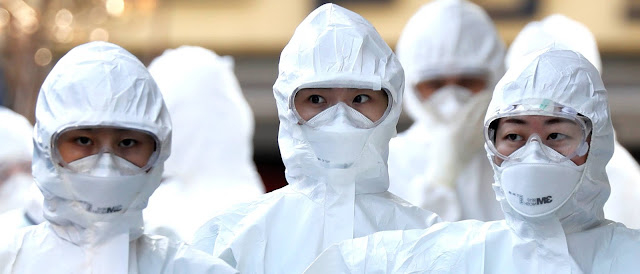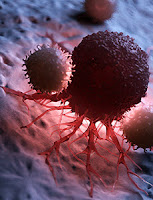Hopes Are High In South Korea As Clinical Trials Bear Fruit

SEOUL: South Korea, once one of the countries hardest hit by
the Coronavirus pandemic, did not report any new cases on Thursday, boosting
hopes for an eventual return to normality as US scientists praised the results
of a major drug trial.
Good medical news caused stocks to rise, despite mounting
deaths worldwide and the bad economic figures caused by the COVID-19 crisis.
The data showed that the epidemic, which killed more than
224,000 people, had plunged the United States into its worst economic recession
in a decade, and left Germany expecting its largest recession since World War
II.
But for the first time since the new disease was discovered
therein mid-February, South Korea has reported any new infections.
The East Asian country experienced the second-largest
outbreak of the Coron virus in the world for a while after the virus appeared
in China late last year.
But with an aggressive testing and tracking strategy and
widespread social outreach, she managed to control the spread of the pathogen.
"This is the strength of South Korea and its people," said President Moon Jae-in, announcing the achievement.
Meanwhile, in the first evidence of successful treatment, a
clinical trial of Remediffer showed that patients recovered nearly 30% faster
than those who took the placebo.
Anthony Fossey, the largest epidemiologist in the United
States, said: "Data shows that remediffer has a clear, significant impact
that reduces the time needed to recover."
The number of victims of the virus in South Korea is about
250, which is much lower than the number of deaths in Italy, Britain, Spain and
France, which each recorded more than 24,000 deaths, and the United States,
topping the table with one third of the global deaths.
Other parts of the region have had similar success in
fighting the virus.
Infection has diminished in China after it imposed very
strict insurance measures on millions of people earlier this year.
The official death toll is around 4,600, although numbers are
doubtful.
 Hong Kong, the city of seven million people with only four
deaths, has not announced new cases for the fifth consecutive day on Thursday.
Hong Kong, the city of seven million people with only four
deaths, has not announced new cases for the fifth consecutive day on Thursday.
New Zealand announced that the battle had been won against a
large and undiscovered community transition.
But economic costs have begun to escalate, raising fears of a specific global meltdown and increasing pressure worldwide to ease closures despite fears of a second wave of infection.
The United States announced that economic output collapsed by 4.8% in the first quarter, ending more than a decade of expansion.
On Thursday, both France and Spain said their economies were worse, shrinking by 5.8% and 5.2%, respectively, while the eurozone economy as a whole shrank as well.
Federal Reserve Chairman Jerome Powell has warned that the worst will come, and economic activity is likely to drop "at an unprecedented rate" in the second quarter.
Germany, Europe's largest economy, has succeeded in stemming the devastating death toll seen elsewhere, but still preparing for an overwhelming economic blow.
Economy Minister Peter Altmayer warned that Germany "will witness the worst recession in the history of the Federal Republic" established in 1949, expecting GDP to shrink by a record 6.3%.
The International Labor Organization said half of the global workforce - about 1.6 billion people - is in "direct danger to destroying their livelihoods".
The International Energy Agency has said that the aviation sector is one of the hardest-hit sectors, but the unprecedented fall in demand for fossil fuels means that global energy emissions are expected to drop by a record eight percent this year.
Experts have warned that only a vaccine will allow the
complete removal of the restrictions this year put half of humanity under some
form of closure.
But there were encouraging signs in the search for a cure.
Fauci remdesivir likened the first, though modest,
reactionary viruses that worked against HIV in the 1980s.
The drug failed experiments against the Ebola virus, and a smaller study, published by the World Health Organization last week, found limited effects among patients in central China's Wuhan city, the original center of the disease.
Michael Ryan, a senior WHO official, declined to evaluate the latest findings, saying he had not reviewed the whole study.
"We all hope - and we very much hope - that one or more of the treatments currently being monitored and under trial will change clinical outcomes" and reduce mortality, he said.
As the world continues to look for signs of progress against the epidemic, research is also revealing frightening new details about COVID-19. Britain and France have warned of a possible coronavirus-associated syndrome in children, including abdominal pain and inflammation around the heart.
"I take this very seriously. We have absolutely no medical explanation at this point," said French Health Minister Olivier Ferrand.
Experts also warned of long-term psychological losses for children and adults after weeks or even months in isolation.






0 Comments